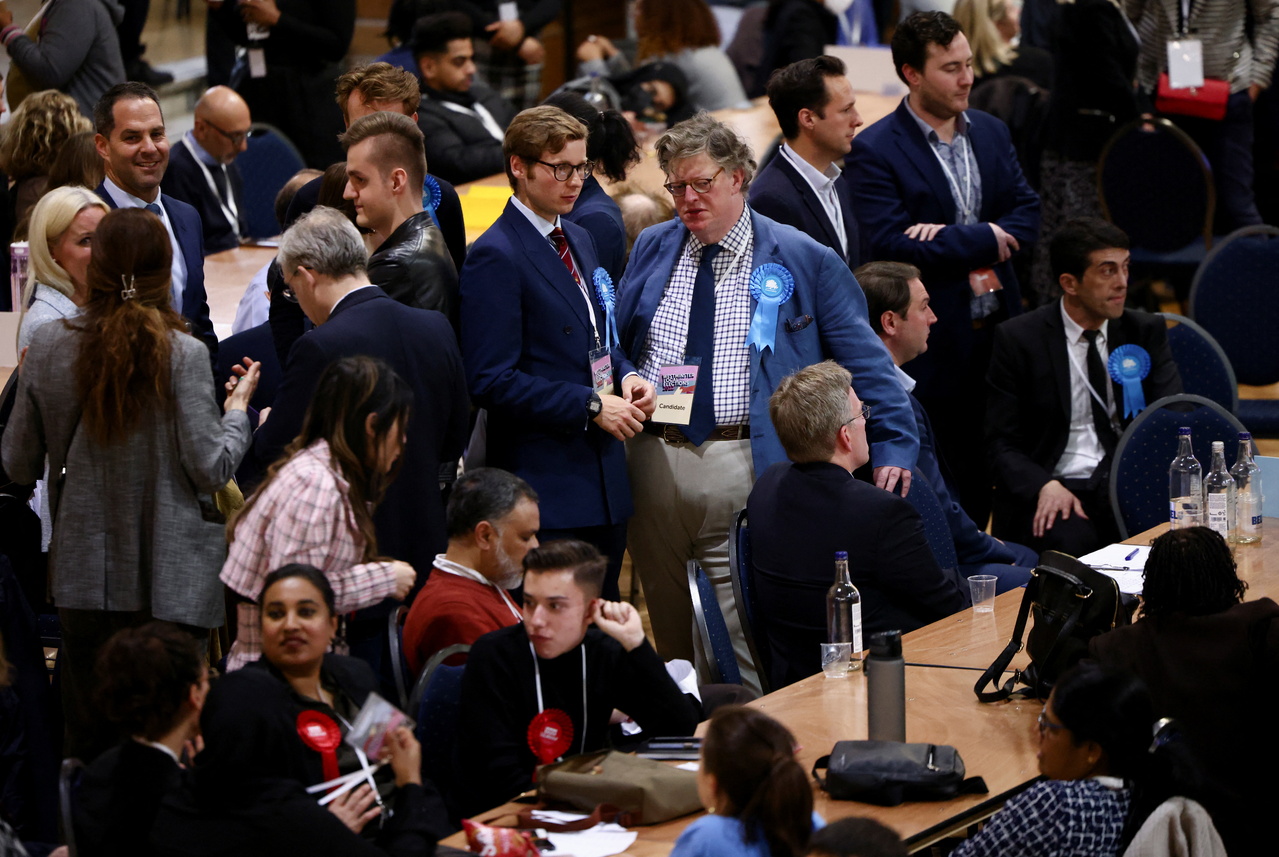British PM Johnson's Conservatives suffers heavy losses in London in local elections
Sign up now: Get ST's newsletters delivered to your inbox

Early results showed the Conservative Party had lost 53 council seats.
PHOTO: REUTERS
LONDON (NYTIMES) - Prime Minister Boris Johnson of Britain suffered significant losses in early results from local elections on Thursday (May 5) in voting that was being watched closely as a test of the damage to him and his Conservative Party from a swirling scandal over lockdown-breaking parties at Downing Street.
For the first time in decades, the Conservatives lost control of the borough of Wandsworth in London to the Labour Party, which also took over Westminster and Barnet in the capital, as well as Southampton and several other districts elsewhere in England. The centrist Liberal Democrats also turned in a much-improved performance.
Only some of the votes were counted overnight, however, and the picture could change later on Friday as more results come in. But it appeared that voters were punishing the Conservatives for the illicit Downing Street parties and the rising cost of living at a time of surging inflation and tax increases.
Johnson acknowledged that it had been a “tough night in some parts of the country”, according to the BBC, but he also said the Conservatives were making “remarkable gains” elsewhere.
In the voting on Thursday, Britons were mainly electing thousands of “councillors” – their representatives on municipalities that decide issues such as garbage collection, planning applications and highway maintenance.
The Conservatives fared badly in London – the party has held Westminster ever since the council was created nearly 60 years ago – and also suffered losses to the Liberal Democrats outside the capital. But Labour was making only limited progress in the north of England at a time when it was expecting advances against a government facing a series of problems.
With 77 of 146 councils in England declaring their results, the Conservatives had shed 121 seats, which meant the loss of control of several boroughs, including Wandsworth, long a symbolic fortress of Conservatism in the capital. Labour was up 34 council seats, fewer than the Liberal Democrats, who had gained 58. The Greens, another smaller party, also made advances.
Although the local elections have no direct effect on the fate of the national government, they were seen by many as a litmus test of the popularity of a prime minister who has already been fined by the police for one breach of his own strict coronavirus laws.
Johnson’s handling of the invasion of Ukraine has stabilised his leadership, but more fines for lockdown breaches could follow, and the government has promised to publish a report on the Downing Street parties that many expect to criticise Johnson.
With the Conservatives trailing in opinion polls behind the Labour Party, Johnson’s own lawmakers are once again considering a no-confidence vote on his leadership. A poor result in the local elections could damage his survival prospects, while a solid performance would help him ride things out.
In England, more than 4,400 seats were contested in over 140 municipalities, but the voting took place only in parts of the country. All the municipalities in Scotland and Wales held elections, and voters in Northern Ireland cast ballots for its devolved power-sharing assembly.
Before the votes were cast, some analysts said they expected Johnson’s Conservatives to lose out in London, other cities and in parts of the south of England but to perform better in northern areas known as the “red wall”. These are regions that have traditionally voted for Labour but switched to the Conservatives en masse in the 2019 general election, helping Johnson to a landslide victory.


